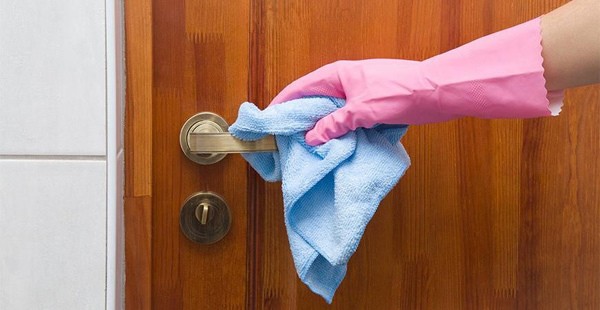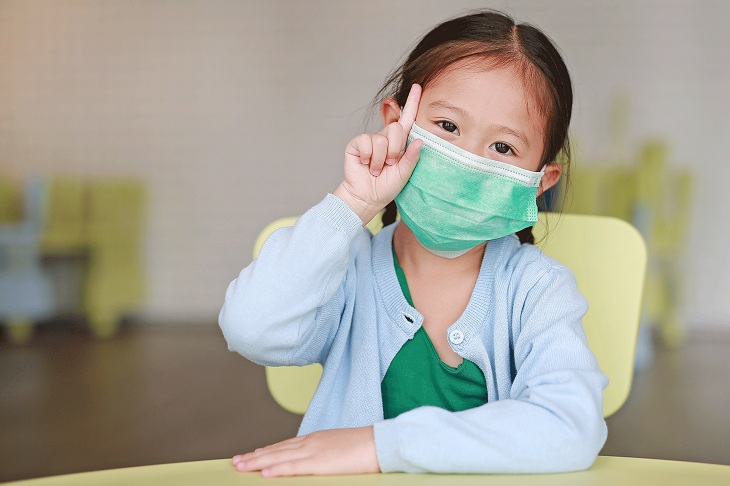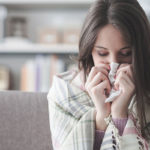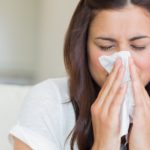1. Compare Covid-19 Symptoms with Common Colds, Flu, and Allergies
| Symptom | Covid-19 | Common cold | Flu | Allergy |
| Fever | Common | Rare | No | Sometimes |
| Dry cough | Common | Medium | Common | Sometimes |
| Shortness of breath | Common | No | Common | Common |
| Headache | Sometimes | Rare | Common | No |
| Body ache | Sometimes | Common | Common | No |
| Sore throat | Sometimes | Common | Common | No |
| Tiredness | Sometimes | Sometimes | Common | Sometimes |
| Diarrhea | Rare | No | Sometimes | No |
| Runny nose | Rare | Common | Sometimes | Common |
| Sneezing | Rare | Common | No | Common |
2. Differences of Symptoms of Covid-19 with Flu and Common Cold
Common colds and flus can be treated more easily, and the body will gradually recover with the right treatment prescribed by a doctor or without taking medication. Just drink enough water, get proper rest, and get some relieve the symptoms in 3 to 7 days. In particular, common flu patients often experience sneezing and a runny nose.

However, with the flu caused by the Corona virus, COVID-19 patients usually experience only a dry and persistent cough, as well as fever. Additionally, this virus rapidly affects the respiratory system, causing pneumonia and shortness of breath. Taking regular flu medicine will not alleviate the disease.
It is advisable to seek medical examination and testing when experiencing these symptoms in order to accurately determine the condition before it becomes life-threatening.
3. Effective Ways to Improve the Immune System
Hygienic Eating and Drinking
Healthy eating and hygiene practices can help reduce the risk of Covid-19 infection. Avoid consuming raw or wild foods. Some raw foods to avoid include poached eggs, raw salads, and undercooked meat. Instead, consume fruit juices rich in vitamin C, such as oranges, tangerines, and lemons, to strengthen the immune system.

Exercise Regularly
In addition to controlling your eating and sleeping habits, regular exercise is also crucial for maintaining and strengthening overall health to prevent and control the COVID-19 epidemic. Maintain a daily exercise routine, including stretching exercises to improve flexibility and blood circulation, and to minimize the risk of infection.

Get Adequate Sleep
Sleeping and resting at the right time helps strengthen the immune system, fight diseases, and reduce the risk of getting sick. Avoid staying up late, as it disrupts the body’s natural rhythm. Ensure you get enough sleep to keep your body in its best state.

Maintain Personal Hygiene
When coughing, cover your nose with a tissue or your elbow, then immediately dispose of the tissue in a closed trash can. Wash your hands with sanitizer for at least 20 seconds to repel bacteria.

Sanitize Surrounding Items
Clean and disinfect frequently-touched items daily to limit the risk of contracting the Corona virus. These items may include keyboards, computer mice, doorknobs, and table tops. Regular cleaning helps eliminate and minimize the risk of exposure to bacteria and viruses that cause diseases.

Wear a Mask When Going Out
Always wear a mask when going out to protect yourself and those around you. It is not mandatory to wear a medical mask; a regular cloth mask can also be used. The Corona virus is transmitted through respiratory droplets from coughing, sneezing, or talking, and wearing a mask is a simple yet highly effective measure.

Reference: Health & Life
Above is an article guiding you on how to distinguish Covid-19 symptoms from the flu and common cold, as well as effective methods to improve your immune system. Consult to protect your health during the epidemic season!
How to Seek Medical Care if You Have Covid-19 Symptoms of Fever, Cough, and Difficulty Breathing
The Covid-19 pandemic is still ongoing, emphasizing the importance of recognizing key health symptoms such as fever, cough, and difficulty breathing. This article gives helpful guidance on responding to these symptoms during this global crisis.





































